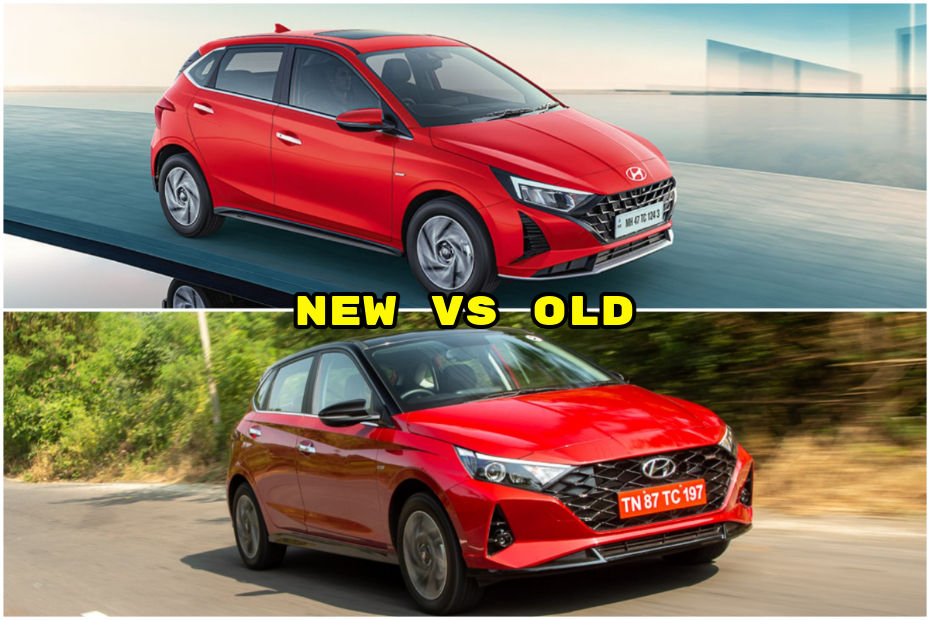New Hyundai i20 Facelift vs Old: Key Differences Explained
Modified On Sep 24, 2023 01:39 PM By Shreyash
- Write a comment
The design changes on the i20 facelift are subtle, though the powertrain options have been rejigged.

The Hyundai i20 facelift has already gone on sale in India featuring minor styling tweaks and rejigged powertrain options. It is available in five broad variants – Era, Magna, Sportz, Asta and Asta (O) – with Era being the newly introduced base-spec model. In this article, we will explore the key differences between the i20 facelift and its pre-facelift model.
Front Fascia


Upon first glance, you will notice that the design changes are subtle, and the i20 remains easily recognizable. The new elements on the facelifted i20 include inverted LED DRLs, a parametric jewel pattern grille, an updated bumper, and a new skid plate. The facelifted i20 no longer features fog lamps, which were offered on the pre-facelifted version seen in the hatchback. The Hyundai logo on the updated i20 is now positioned on the front part of the hood, whereas it was previously embedded on the front grille.
Also Check Out: 2023 Hyundai i20 N Line Facelift: What’s New And What’s Not
Rear


Similar to the front, the changes at the rear are once again quite minor. The Z-shaped LED tail lamps have been retained on the i20 facelift, but it now features an updated bumper with a new silver skid plate.
Interior


From the inside, the new i20 facelift features an identical dashboard design to the pre-facelift model. However, unlike the all-black cabin in the previous version, the updated premium hatchback now boasts a black and beige treatment. The feature lists of both i20 versions are nearly identical, including a 10.25-inch touchscreen infotainment system, a semi-digital instrument cluster, and a single-pane sunroof. The sole new feature in the i20 facelift is the inclusion of a USB-C type charging port.
When it comes to safety, it has been improved with the facelifted model which now gets six airbags, six airbags, ISOFIX child seat anchorage, ESC, hill assist control, day-night IRVM, vehicle stability management, and three-point seatbelts for all passengers as standard.
Powertrain

This is where the reshuffling has taken place, as the new i20 no longer offers the option of a 1-litre turbo petrol engine, which was previously available with the regular i20. The updated i20 now comes with a 1.2-litre turbo petrol engine (up to 88PS and 115Nm). This engine can be paired with either a 5-speed manual transmission or a CVT gearbox.
The turbo-petrol engine is now exclusive to the Hyundai i20 N Line, which has also got a facelift recently. To know more about the updated i20 N Line, click here.
New Base Variant

The pre-facelift version of the i20 was available in four broad variants – Magna, Sportz, Asta and Asta (O) – with Magna being the base-spec trim. Now, with the updated i20, a new base-spec Era variant has been introduced, making the hatchback more accessible to buyers.
Price Range & Rivals
The Hyundai i20 facelift is priced from Rs 6.99 lakh to Rs 11.01 lakh (ex-showroom pan India). It takes on the Tata Altroz, Maruti Baleno and Toyota Glanza.
Read More on : i20 on road price
2 out of 2 found this helpful















